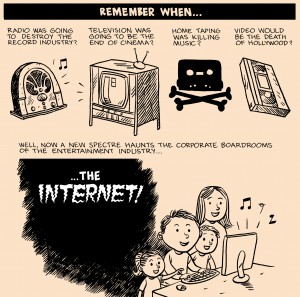
The New Zealand Ministry of Economic Development has invited submissions from the public on “enforcement in the digital environment.” This is in the context of the ongoing talks on ACTA, which is being negotiated in Wellington, NZ in April (in ridiculous secrecy, of course). So if you’re in New Zealand and you care about copyright, ACTA or the future of the internet, please send them a submission. You’ve only got a day or two (they close tomorrow, Wednesday 31 March). A quick email is sufficient: it’s worth letting them know there are people out there who care.
You can read my submission to them after the jump. I wrote it quickly, so it’s not especially good. But I couldn’t just stay silent.
There’s some good information on making a submission at the ACTA.net.nz site.
And note this in your diary, too: the PublicACTA conference, being held in Wellington on 10 April, just days before the (secret) ACTA talks open in Wellington.
(Update: and, to my surprise, here’s my submission translated into Italian – thereby illustrating my point about the viral nature of the internets! LOL)
Submission on Enforcement in the Digital Environment
This is my submission on Enforcement in the Digital Environment and is my response to MED’s invitation for such submissions.
I am a full-time professional artist and published author, and so I have considerable interest in NZ and international copyright law. I have had numerous books, stories and comics published in NZ, Australia, Europe and North America, and have worked with both small and large publishers, as well as self-publishing. I have been on Creative NZ selections panels, have advised creative writing and art students for universities and art schools here and abroad, and lecture frequently on comics, writing, art, and the future of the arts economy in the digital age. I have been the University of Auckland-Creative NZ Literary Fellow, have attended international literary festivals as a featured New Zealand author, and have received awards and honours in several countries.
As someone whose livelihood depends on my art, I feel that the internet offers unprecedented opportunities for getting my work out to my audience, and for creating new audiences that the logistics of traditional publishing made impossible. I have experienced first hand and on many occasions the collective power of the internet to spread my work in ways neither I nor my publisher could have orchestrated alone. In addition to the inherent satisfaction of finding an ever-larger audience, this has also given rise to exciting new opportunities for me to make money from my work, through commissions, sponsorship, book sales, merchandising and the sale of unique and personalised items (original art, signed books, etc).
All of this has taught me some important lessons about the changing nature of copyright in the digital environment, and these are what I would like to submit to the Ministry:
1. Copyright needs to be redefined to allow artists, authors and audiences to fully exploit the new opportunities that are opening up. Instead of “tightening and extending” copyright, we need to start distinguishing between commercial copying (which should continue to be controlled by the law) and noncommercial copying (which should not be restricted by law).
2. The idea that all copying must be authorised (or else be illegal) makes no sense in the digital environment. The internet works through copying – that’s how the technology of it functions, and it’s also how its power to promote and market ideas and art is unleashed. For example, when my work “goes viral” – i.e. is copied from website to blog to aggregation site to tweet to email (and so on) – I benefit enormously from that exposure. This is not something I can engineer or control, and when it has happened it has always come as a pleasant surprise. I have benefited from these frenzies of “unauthorised” copying in a number of ways, from international commissions to increased sales. I have learned that such copying is in my interests; in fact, it is essential to my success in the digital environment.
3. I have had work shared (without authorisation) via filesharing networks. In every case, it led to growing support for my work and an increase in sales. This taught me two important lessons: first, that filesharing is not the enemy of working artists, but our ally. The people sharing work in this way are its greatest fans, and often also its biggest customers. Second, having my work shared freely online has significant positive effects on my career. This is why I now publish new work online using a Creative Commons (Attribution-Noncommercial) license, encouraging my readers to share the work as widely as they wish – so long as they do not exploit it commercially. As a result, my readership (and sales) have been growing.
4. I am not alone in this experience. Many authors and artists have found that making their work freely available online increases their popularity, and also their financial success. Cory Doctorow, the Baen Library authors (including some of the biggest names in Science Fiction), Andrew Garton, Dan Gillmor, Charles Stross, Lawrence Lessig and many others have experimented with this approach, with tremendous results. I know many younger graphic novelists who began by releasing their work freely online, and who are now enjoying successful professional careers – by continuing to do so.
5. Efforts by larger media corporations to inhibit and restrain the internet’s ability to copy and share “content” are having a negative effect on the emergence of these new and innovative approaches and on artists’ efforts to use the internet to create new income streams and distribution models. Dubious “takedown notices” and accusations of unauthorised copying are having a chilling effect on the ferment of creative innovation that is the most exciting aspect of the internet. As a working author and artist, I find it frustrating that these destructive efforts are being done in my name, and yet are impacting negatively on my own career.
6. It is increasingly important to distinguish between the interests and goals of artists & creators on the one hand, and of publishers, record companies and media corporations on the other. I strongly object to lobby groups claiming to represent me, when in fact they represent the same corporate interests who are often happy to treat me and my peers as nothing more than cheap hired labour. Protecting the arts (music, literature, art and film) is not the same as protecting the business models of an increasingly obsolete distribution industry. Many artists and writers I know object to their audience and fans being treated as criminals by the media industry.
7. The internet is especially important for New Zealand artists, as it provides us with a powerful means for taking our work to the entire world. With this in mind, I hope that the MED recognises that the interests of New Zealand artists and businesses are not the same as those of large multinational media corporations. Lobby groups which are primarily pushing the views of overseas interests should not be allowed to define the interests of New Zealand.
8. The issue of copyright is one that concerns the whole community – not just the so-called “content industry.” Everyone has a stake in how we define copyright, and how access is granted to our culture. It is essential, then, that this issue is discussed widely throughout the community, rather than being negotiated behind closed doors by government and industry lobby groups.
9. Lastly, but perhaps most importantly, the issue of “intellectual property” has become a crucial wedge issue which has the potential to reshape the whole structure of the internet over the next few years. If governments bow to pressure from the “content industry” and allow media corporations to hold ISPs and internet users to ransom, or to build up a system of automated monitoring and control of online activity, this will destroy much of what makes the internet the most powerful force for cultural and economic innovation and prosperity in the world today. There are vital public good issues concerning privacy, democracy and freedom of speech at stake. This is an important democratic and economic issue for everyone – and should not be allowed to be driven by one particular industry alone.
To conclude, my recommendations are:
– any changes to NZ legislation should have the goal of loosening copyright as it applies to non-commercial copying.
– any changes that would extend or “beef up” copyright and dampen innovation should be resisted.
– efforts to criminalise noncommercial copying (such as the use of filesharing networks), or to increase penalties for such activity, should be rejected.
– fair use and public domain rights should be protected and strengthened.
– the privacy and civil rights of New Zealanders must be protected – both online and at national borders.
– any treaties affecting NZ copyright law (such as ACTA) must be negotiated in public, and extensive public consultation should be sought.
The interests of New Zealand artists and creative industries are best served by recognising that digital technology and the internet represent an enormous opportunity for a country such as ours, and that copyright law must adapt in ways that help facilitate innovation and creativity, rather than shutting it down.
Yours sincerely
Dylan Horrocks
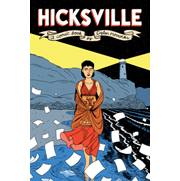
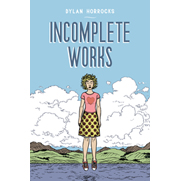
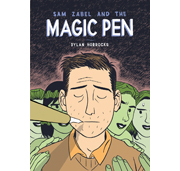
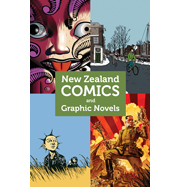













Good. I concur.
IS plagiarising your submission in keeping with the intent of making one?
LOL – it totally is! 😉